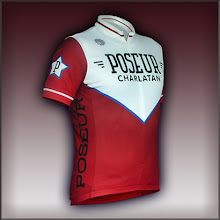From the transcript, this is the sentencing comment made by Judge Calvert at my "Reckless Driving" trial last August.
I’m sympathetic to the defendant’s blight. In fact, what he was doing was in many ways very admirable, trying to get a job, exercising every means at his disposal to try to regain gainful employment, and utilizing the resources that he had available to him at the time to provide that he had available to him at the time to provide for his own needs without relying upon other people. And so in many respects his conduct’s admirable. And in many respects, it’s lawful. As the parties were arguing and even some of the evidence earlier, trying to think of an example that might apply and I don’t know that this is a good example, but this is the one that came to mind, is that it’s not unlawful for a boy to swing a bat. In fact, it’s good for them, it’s good exercise, it’s good for them to participate in athletics and be in team sports and things of that nature.
But there are times when swinging a bat can become more dangerous, get into a crowded room or you get into circumstances, the swinging of the bat circumstances can change in such a way that if you put other people at peril even if you’re not at risk of being hurt, they might be injured by the way that you’re doing something that otherwise is completely lawful.
And there are times when it can even go beyond that where it’s reckless to where it could even be construed as knowing that there’s a high likelihood that somebody would get hurt if you continue that type of behavior and at some point, some people can infer by your conduct that you’re intentionally putting other people at risk, so that you could be accused of assault and even at times aggravated assault with a deadly weapon with a piece of wood that otherwise completely lawful to be utilizing. So there’s a spectrum there that has to be taken into consideration. And there needs to be good judgement utilized by people not only with regard to their own safety but to the safety of others. And you may be right. It may have been safer for you under some circumstances to ride in the middle of the roadway, but that doesn’t mean that it doesn’t create a hazard for other people at times. And it may even jeopardize your own safety under certain circumstances. You have to take into consideration the safety of other persons and their property under those circumstances.
In this case, according to a note that was left by the clerk, the court costs, due to the subpoenas that were issued, are in the neighborhood of $512.10. It will be the judgement of the Court 13 days in jail, a $100 fine plus the court costs and give him credit for time served. Five extra days will be applied to the balance of the fines and court costs reducing the total by $500. Any remaining balance will be due to be paid.
My Fun New Hobby
1 month ago


